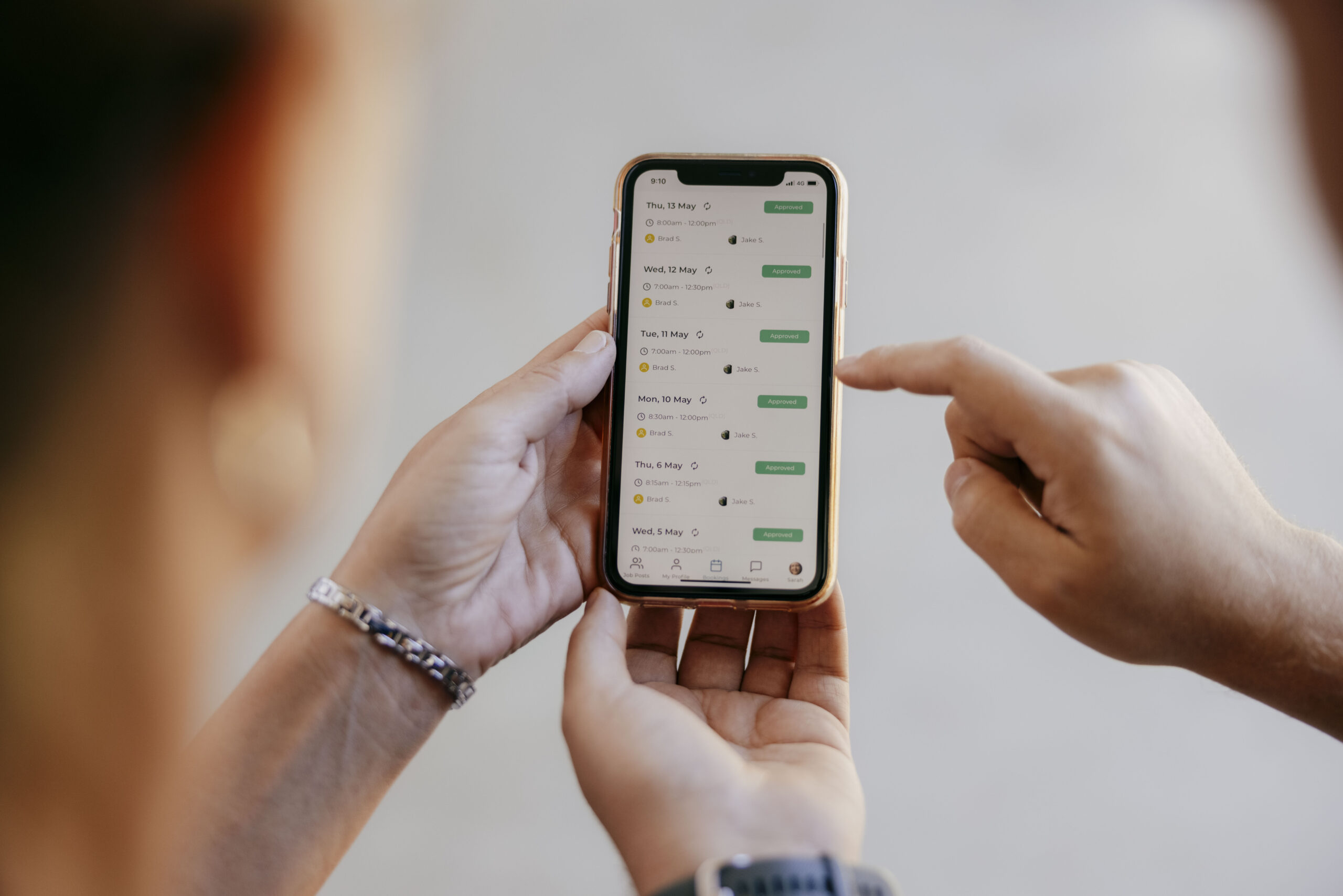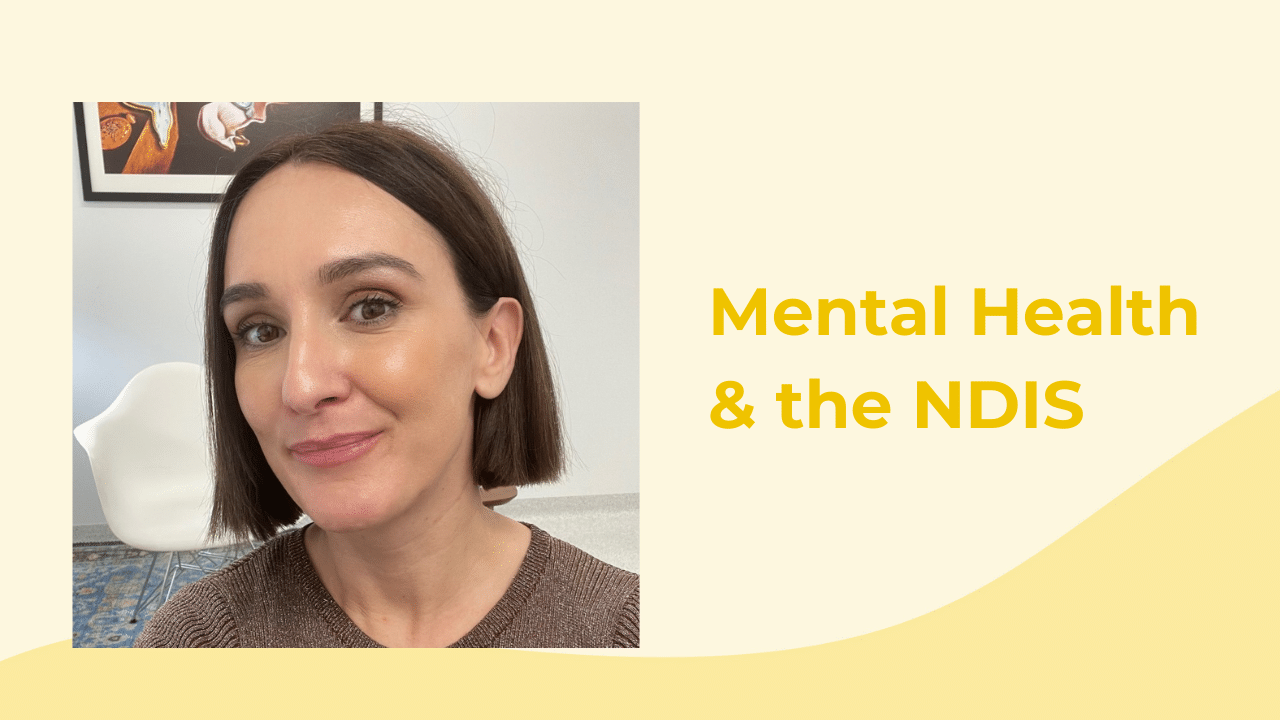Managing your NDIS Plan and how to spend NDIS funding can feel overwhelming, especially if you’re a new NDIS Participant or family.
It's time to learn about 'reasonable and necessary'.
Understanding exactly what the NDIS can pay for and how to best spend your NDIS funding can be confusing. With your NDIS funds, it’s important to understand time isn’t money - money is time. The more money you save, the more ‘time’ and support you’ll get. So ask yourself, how can I use my NDIS funding?
What Can The NDIS Pay For?
When you're looking at how to spend NDIS funding and more importantly, how to effectively spend it, you need to understand the funding categories. There are 3 types of support budgets that may be funded in your NDIS Plan: Core, Capacity and Capital. To give you an overview, we’ve summarised some of the key areas in each category that can be funded and some commonly queried items that are typically not funded by the NDIS.
Core Supports Budget
This funding is for everyday activities to help you live and work towards your goals.
The NDIS may fund:
- Personal and home assistance e.g. help with showering, dressing, cleaning, cooking and garden maintenance.
- Assistance with social and community participation e.g. A Support Worker may help you attend a group gym or art class once a week.
- Transport to and from work, to appointments or NDIS supported activities.
- Everyday consumables such as continence or eating aids e.g. adapted cups, cutlery and some basic cooking utensils.
The NDIS will not cover:
- Rent or mortgage repayments
- Electricity, water, phone or internet bills
- Medicine or vitamin supplements
- Food and groceries including household cleaning supplies
- General toiletries
- Holiday travel and accommodation - the NDIS may fund Support Workers to help you during your holiday if ‘reasonable and necessary.’
Capability Supports Budget
This funding is for activities that will help build your independence and support you to learn new skills to achieve your goals.
The NDIS may fund:
- Activities that help you learn new skills e.g. improved relationships, finding employment.
- Activities that relate to improving your health and wellbeing e.g. Meeting a dietician and/or personal trainer.
- Improved learning activities e.g. training and advice to help you transition from school to further education.
The NDIS will not cover:
- Entry to art galleries, the cinema or sports events.
- Course fees, text books or membership fees (including the gym).
Capital Supports Budget
The NDIS is very specific about what funding can be allocated for specific items within the Capital Support budget.
The NDIS may fund:
- Assisted technology that allows you to do something you typically wouldn’t be able to do e.g. walkers, walking sticks, wheelchairs, hoists, speech generating devices.
- Home modifications to help you move around safely e.g. handrails in the bathroom, ramps.
The NDIS will not cover:
- General household furniture and appliances.
- Non-disability related apps and technology.
If you’re ever unsure how you can spend your NDIS funding, ask yourself ‘would someone without my disability normally be asked to pay for this?’ If your answer is yes, it’s likely the NDIS Plan will not cover this cost.
For more personalised and specific advice, be sure to call the NDIA or ask your Support Coordinator or Plan Manager about any specific expenses.
How To Manage Your NDIS Funding
There are 3 options to manage your NDIS funding. When first joining the NDIS or going through a renewal of your NDIS, you’re normally able to request the type of funding that best suits your needs. Each option has some important differences.
Self-Managed
Here’s how it works:
- You control your funds, directly pay for things, and are then reimbursed.
- You can use any provider you like, whether registered or unregistered, and this gives you more genuine choice with who you choose to support you.
- You don’t have to strictly follow the NDIS price guide. You have the flexibility to mutually agree rates and services with your NDIS Support Workers.
- You can be more innovative in how you spend your NDIS funding.
- NDIS Participants in rural areas have more options available.
With Self-Managed NDIS Funding, it’s important to remember:
- You need to have the capacity and time to engage with Support Workers, manage your admin, including paying invoices and making claims.
- You need to keep records and receipts of all your services and Support Worker bookings in the event of an audit.
Plan-Managed
Here’s how it works:
- You’re free to choose a ‘Plan Manager’, just like any other service provider.
- The Plan Manager pays your invoices, yet you'll still have lots of flexibility!
- You’re normally sent statements to help you track your NDIS budgeting.
- You can use any provider you like - both unregistered and registered providers.
- The NDIS Price Guide maximum limits apply.
- NDIS Participants in rural areas have more options available.
- No need to keep invoices and receipts. Your plan manager does that for you.
With Plan Managed NDIS Funding, it’s important to remember:
- If you choose a Support Worker who charges above the NDIS Price Guide, you’ll need to pay the difference. It’s best to keep it simple and not go over the Price Guide maximums.
- If you prefer a plan managed option, take the time to do your research, ask for recommendations and look at 2-3 Plan Managers before making a decision who to go with. Some Plan Managers are only available online, others are local services.
NDIA-Managed
Here’s how it works:
- You can only access “Registered Providers”, who send invoices to the NDIA.
- The NDIA pays invoices on your behalf.
- The NDIA will manage all your book-keeping and records of spending.
- You can easily keep track of your funding and NDIS budgeting by looking at the myplace portal.
It’s important to remember:
- As you can only access 'Registered Providers', this often means you'll pay the maximum hourly rates.
- If you live in a regional area, you might be very limited for NDIS services.
What Does Kynd Recommend?
We highly recommend going for ‘Plan Managed’ funding. This means you can choose any Support Worker, mostly avoid paying the maximum NDIS hourly rates and fees, and avoid the ongoing hassle of doing your own admin, claims and paying invoices. On Kynd, you approve invoices and we email them to Plan Managers.
Self Managed funding is another great option for flexibility and savings.
Everyone has unique circumstances. You must do what’s right for you, but with Self Managed or Plan managed you have more choice of your Support Workers.
Plan Your Schedule And Budget
You want to ensure you always have the support you need. This means ensuring you do not run out of available funds for those support needs!
That means a budget. It's not fun or sexy, but golly gosh, it's helpful.
When looking at how to spend NDIS funding, budgeting is critical.
NDIS budgeting can get complex very quickly and spreadsheets aren't everyone's cup of tea… but even some basic calculations will help.
Here's a simple example…
Jane Smith // Support Worker Budget
Support Needs: 10 hours per week = 520 hours per year
Available Funds: For Support Workers = $25,000 per year
Current Budget: Maximum cost per week = $480
Current Budget: Maximum rate per hour = $48
To ensure 10 hours a week of Support, Jane can only spend $480 per week and has to find Support Workers for a maximum $48 per hour. Knowing this helps Jane consider her options to stretch her funding.
If you aren't happy with the inclusions or funding offered in your plan, you can contact the NDIA for details about submitting a plan review and the process.
Know The Fees You’re Charged
Many organisations charge high rates and lots of fees. For things like…
- Normal support rates
- Night / overnight rates
- Saturday / Sunday rates
- Public holiday rates
- Transport / travel rates
- Establishment charges
- Cancellation charges
Before you sign any service agreements or setup NDIS support, ask for an itemised list of the NDIS Support Worker rates and fees a provider will or may charge you.
You can then compare, negotiate rates and fees… or look elsewhere!
You wouldn't pay $12 for a coffee. Why overpay for support services?
If you pay the maximum hourly rates and lots of fees, you might lose a lot of value - but value is different for different people. Some registered providers are very traditional and often, they will charge every possible fee. That's why knowing your fees is important.
For the best value for money use a solution like Kynd and directly choose Support Workers. Why? You can avoid setup and admin fees, agree better and 'all-inclusive' rates and only pay for the support hours you need, versus booking minimum times.
Agree Rates For Specific People
Support Workers are unique. Each one brings a different personality, skillset, qualifications and interests. You'll likely have different feelings of 'chemistry' with different people and the value people offer to you.
That's why we believe in agreeing rates for specific people.
Based on what's valuable for your needs, you might be happy to pay $48 for Sally, but only $40 for Frank. You shouldn't be locked into one rate for every Support Worker if the 'value' you receive always differs.
To help ensure your Support Workers are happy, it's helpful to ask and know exactly what they are hoping to be paid. When Support Workers are happy with their wages, you'll likely get more loyalty and reliability in your relationships.
Only Pay For What You Want
Sadly there are stories across the communities where Providers have 'pushed' people to accept a 'suite of support' or agree to things they don't want.
Example 1:
You only need 'Service 1'… but a provider says they will only offer you Service 1, if you agree to accept 'Service 2' and 'Service 3' using them.
Example 2:
You only want support for certain days and times, but a provider says you have to commit to minimum hours or specific days or times only.
Example 3:
A Support Coordinator works for an organisation that also provides Support Workers and they only (or often) recommend their service.
That's not cool. It means less choice and control (and less value for money).
Learn how to find the right Support Coordinator.
How to Spend NDIS Funding
Naturally, you'll want to spend those available funds in ways that maximise support outcomes and achieve the goals of your NDIS Plan. Whether it's daily personal care or more structured longer-term capacity-building initiatives, getting 'bang for buck' matters.
Take the time to do your research for your specific NDIS Plan.
Learn how you can use your NDIS funding. By understanding how to effectively spend your NDIS funding you’ll save money, and have genuine choice and control by only choosing and paying for the support you need, when you want it, and through people or providers that are right for you.






















